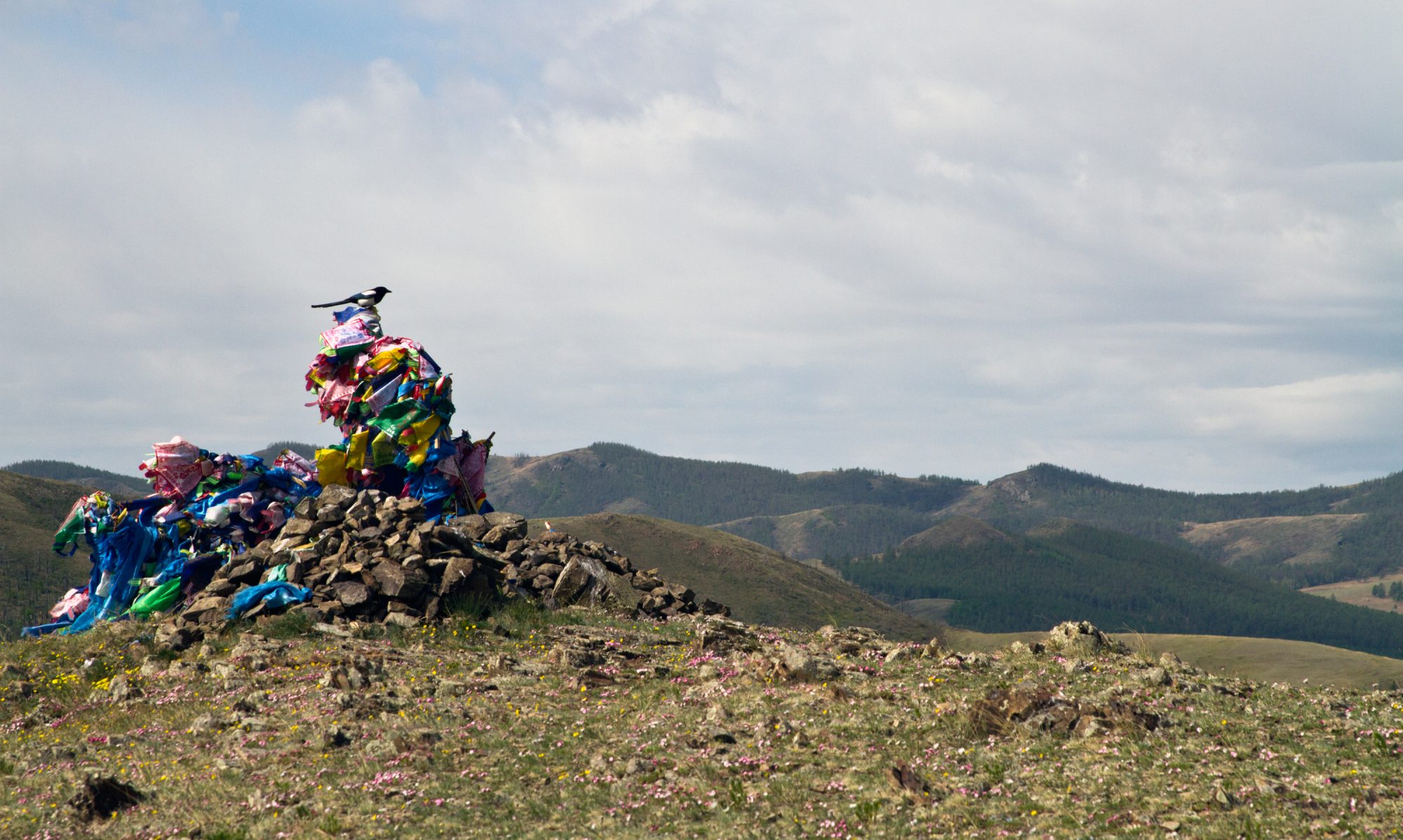The houses in the town are mainly made of stone, basalt I think, and there is a certain look to the streets I haven’t seen elsewhere. There are long shared walls running along the street, made of stone and mortar, the mortar in many of them shaped in such a way around the stone to give a leopard-skin pattern to the wall.
There are gutters between the streets and the walls, and each house’s wall has metal doors large enough for a car, painted eggshell blue with rectangular or curved gaps near their tops that are decorated with bars in a fan pattern or the pattern of a sunrise, or even one is curled into the shape of an eagle clutching a snake in its talons. When the doors are open you can see in and there are their stairs and balconies, their laundry and their gardens, like a photograph sitting there, or in the mornings sitting around their tea.
The town’s only colors seem to be rock-grey, green, or roof-red. The streets are mainly straight, and they define a downward-sloping, tilting plain of the right bank of the river. Across the river, below downtown, the streets follow the curves of the hills but up above the ground seems unnaturally regular, only the river, running ten meters below the plane of the streets is like a long, curved hole cut in that plane, showing the terrain beneath it like a cross-section. The effect is an illusion that the town is floating some distance above the ground.
Across the river are a series of caves, none of them very shallow. They had been used as dwellings at least since the medieval period, and possibly far earlier, and some of them were used as recently as the Karabakh war. Some are still used, either to keep cattle or for recreation. They are all clearly man-made, with rounded entrances and windows or holes created to cool the cave; some seem to be made for summer use and some for the winter. They look like old teeth coming up from the earth’s green gums, and the caves are cavities rotted into them.
